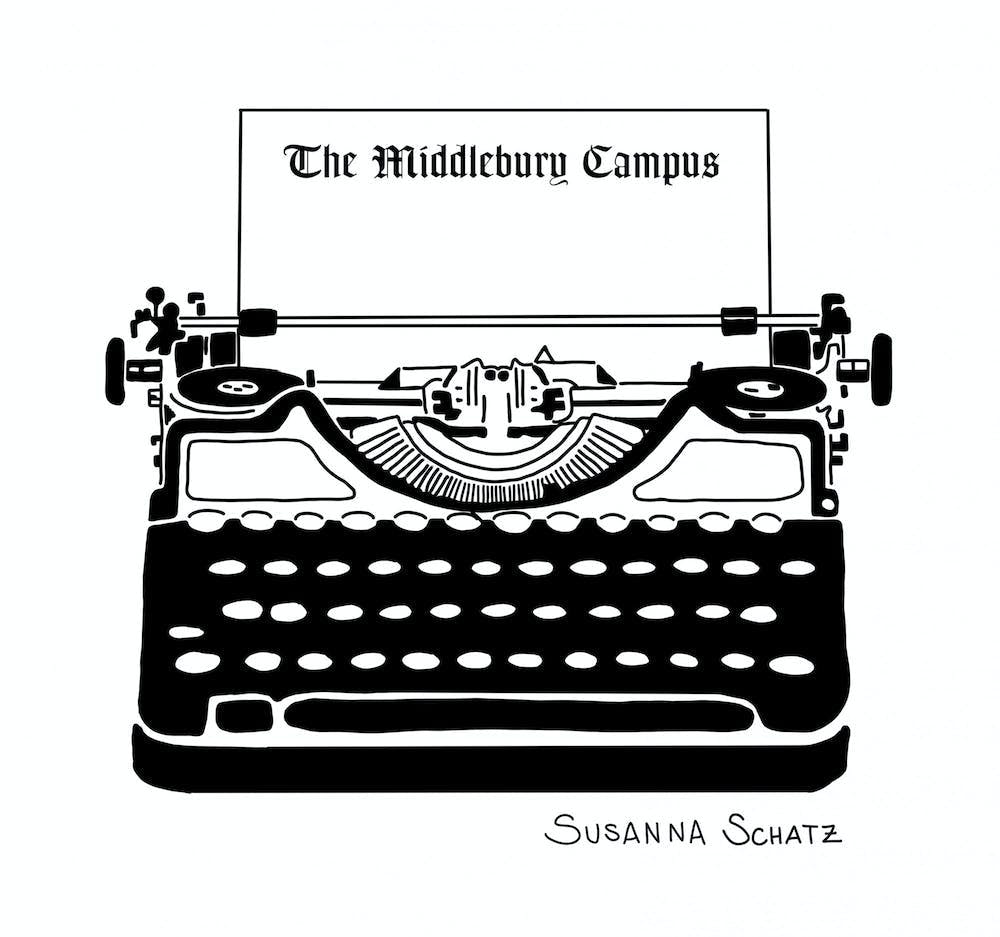Ninety-eight percent of Middlebury students were registered to vote for the November 2020 presidential election. That number doesn’t surprise us. Comparable liberal arts schools, including Bowdoin College, St. Olaf College and Bates College are also high on the Washington Monthly list. Perhaps Middlebury naturally tends to attract politically active and engaged students — or the work of civic engagement-focused groups such as MiddVotes and Civics in Action has been successful in increasing student voter registration.
But we should not get too excited. The stakes of the 2020 presidential election felt particularly high to many, shown in part by the race producing the highest percentage of voter turnout of the twenty-first century. We encourage students not to lose momentum, even if future elections feel less like an exciting opportunity to enact change. Beyond national elections, we also urge students to pay attention to local politics — a good place to start would be right here on campus, with the Student Government Association (SGA).
Civic engagement at all levels of government, from SGA and Community Council elections on campus to the presidential election, matters. We empower students to remember the value their political engagement can have in many forms, particularly on the smaller scale of on campus governance or Vermont state politics, where the number of voters involved is fewer.
We have seen a number of moments of political engagement at Middlebury in the recent past. Students mobilized against Charles Murray’s visit to campus in 2017, protested against Middlebury’s investment in Chase Bank and campaigned for a well-respected professor to be given a tenure track position. These examples show that Middlebury students can and do become passionately involved in meaningful issues on campus. We urge students to continue to be aware of issues happening at the college and agitate to hold the administration accountable when possible.
Many have cited Middlebury’s rural location as a restriction to their political engagement. It is true — the nearest city of Burlington, which only has around 44,000 people itself, is an hour away. Middlebury, therefore, can feel like a bubble, isolated from large protests and political action. At the same time, we are lucky to be in a state with such a unique and vibrant political culture. Vermont is one of only 10 states where the Democratic and Republican parties share power in government, and the state government has been known to successfully get things done across the aisle. We wrote this week on Vermont’s annual Town Meeting Day, which is often held up as the pillar of local democracy in its truest form. Throughout the rest of the year, residents are known for their displays of passion at local town meetings, most notably in the turbulent school district consolidation debates of the past several years.
Just like for our state and federal governments, SGA requires voter engagement to run smoothly. After all, the SGA is working on projects such as reducing the academic credit requirement, supporting mental health, and voicing the student body’s preferences to the administration, faculty, and board of trustees. However, student engagement with SGA is concerningly low. For the past few years, SGA elections have never garnered over 50% of the vote, and last year, only around a quarter of students voted in mostly uncontested races. Student engagement in SGA elections will make the elected SGA members more representative of students’ interests and increase the respect the organization receives across the college.
To our SGA elected representatives, we are grateful that you took the initiative to run for your positions and spend time engaging on issues that the student body cares about. However, we encourage more students to contest SGA elections and run engaged campaigns — our student body deserves the opportunity to make a real choice in who it selects to represent us. We also ask that you carefully weigh the responsibilities of your position and find new avenues to exert influence over Middlebury’s discourse. The SGA must serve as a strong voice for the thousands of students here, even when it is uncomfortable or challenging.
In the four years that students spend at Middlebury, we will make new friends (some of them for life), take classes that challenge our ways of thinking, fall in and out of love, eat countless meals in Ross, learn to ski or skateboard, and likely cast our first ballots. Our actions here are not just limited to the daily routines we develop in our own lives, however. Students have the ability to push the boundaries of their communities through consequential civic action — whether that occurs at Town Meeting Day, an absentee ballot or the next SGA election.
It sounds idealistic, we know, and perhaps even naive to some. But isn’t that what college is for? Now is the time in our lives to take bold swings and brave stands, to show up and assert that our generation’s voice will be heard, and to be passionate about every opportunity to affect change in our community.



